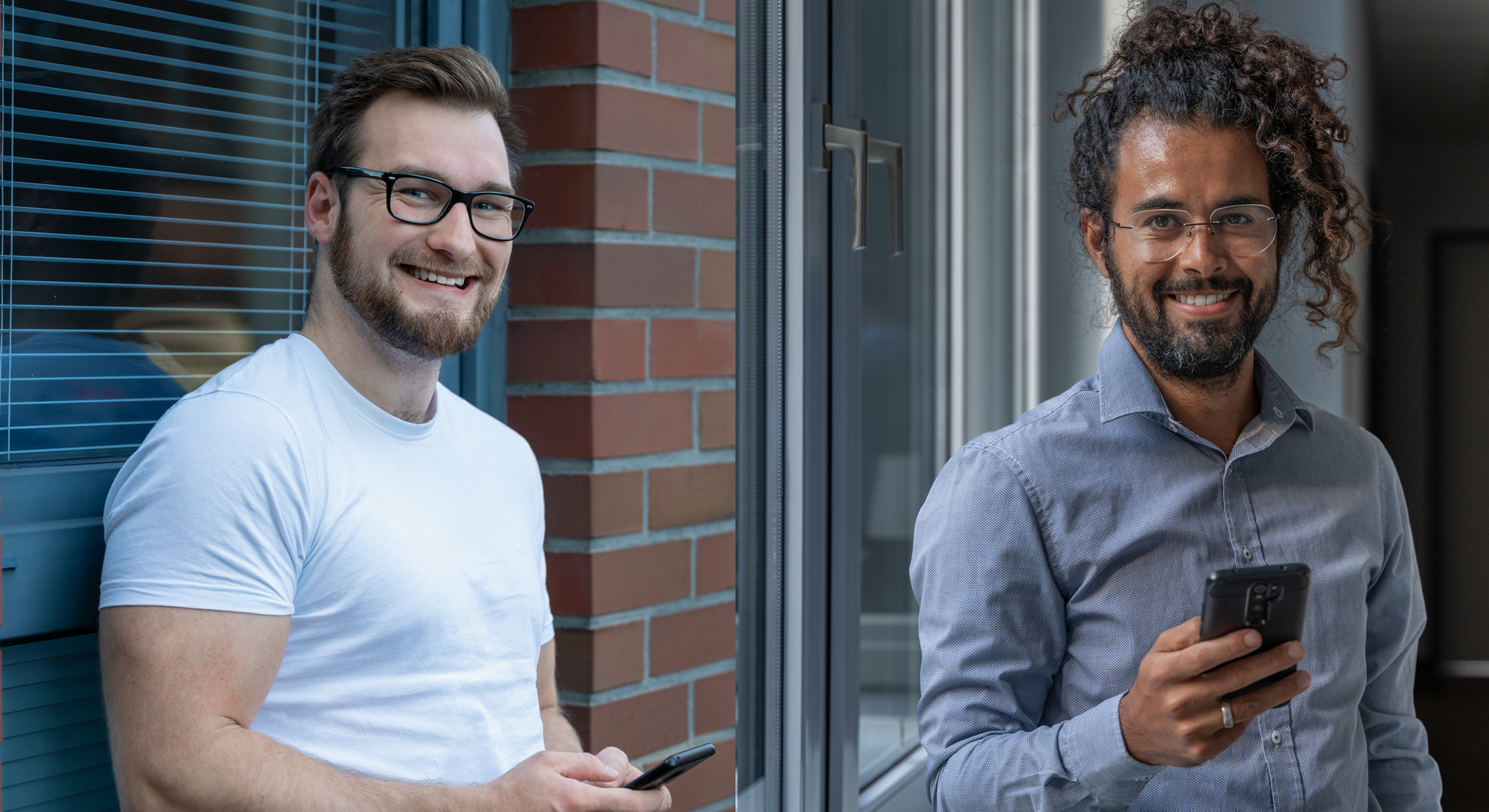Because being a superhero isn’t a real job
Susanne Marth is passionate about all things maritime and marine conservation. That is why she works for the Waterways Police ...

For new IT employees at Eurogate, the onboarding process starts not at the computer, but at the port. “We took a full tour of the container terminal in Hamburg – complete with a ship visit, van carrier ride, a climb up an 80-metre-high gantry crane and insights into other working and planning areas,” recalls Sören Striewski (25), who joined Eurogate as a software developer following his master’s in computer science. Sat beside him is his colleague Carlos Santos (37); a year ago, they dove into the world of logistics together for the first time.
Carlos had previously worked as a software engineer in the banking sector, but in that industry he saw no prospects of developing new software applications and seeing the result for himself. So, he handed in his notice. His plan was to enjoy a three-month hiatus in his home country Brazil and then seek a change of career. Instead, he had bagged a contract with Eurogate as a full stack developer eight days later. This gave him a good feeling. IT specialists are sought after. Striewski had a similar experience: “Even before I had begun my master thesis, I had been contacted by a recruiter.” In both cases, they were approached on the social media platform LinkedIn.
At the moment, both are working on an invoicing project – in a hybrid model from home and the Eurogate site in Bahrenfeld. Santos gives context: “This work package is part of our company-wide project to rewrite the software and transfer it from on-premises infrastructure (with servers on site) to the cloud.
Web-capable and mobile solutions are also being developed.” This work involves on-site visits. He just recently had a look at the invoice department at the Port of Hamburg to find out what he needs to keep in mind during development. His next stop is the Eurogate terminal in Bremerhaven. The aim is to deliver the software internationally to all terminals.
Santos’ expectations on his new workplace have been fulfilled: “Straight away, I’ve been dealing with people, quickly having a noticeable impact and learning every day.” Carlos – who has a master’s degree in computer science and German studies – estimates the time it takes to pick up all the technical terms in logistics at two to three years. Striewski is also convinced he made the right decision. The combination of “speaking as equals”, “getting involved”, “overseeing interesting projects” and “the standard salary paid” is just right.
There are also attractive development prospects. His next plans are to apply for the internal talent programme. The 24-month training programme includes training modules on management topics, a variety of project assignments, including the opportunity to get to know a terminal site abroad, as well as support from a mentor.
Requirements: If you wish to embark on an IT career at Eurogate, you should definitely be fascinated by IT, the port and logistics.
Softskills: An interest in topics like digitalisation, automation, AI and sustainability is likewise an advantage. Here you can expect flat hierarchies and a dynamic working environment. You will also be working at the forefront of the economy and provide a valuable contribution.
If you have a passion for the port and high-technology, then Eurogate is the employer for you. You can find current job ads and the exact requirements for the relevant vacancies on the Eurogate website.